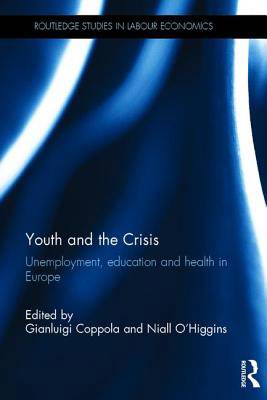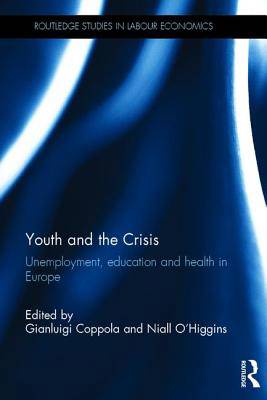
- Retrait gratuit dans votre magasin Club
- 7.000.000 titres dans notre catalogue
- Payer en toute sécurité
- Toujours un magasin près de chez vous
- Retrait gratuit dans votre magasin Club
- 7.000.0000 titres dans notre catalogue
- Payer en toute sécurité
- Toujours un magasin près de chez vous
Youth and the Crisis
Unemployment, education and health in Europe
Description
The recent recession has led to an ongoing crisis in the youth labour market in Europe. This timely book deals with a number of areas related to the context, choices and experiences of young people, the consequences of which resonate throughout their lives. The focus of the contributions to this volume is on issues which, whilst undoubtedly important, have thus far received less attention than they arguably deserve.
The first part of the book is concerned with issues related to education and training, covering matters such as the role of monopsony in training, the consequences of over-education, and the quality of educational institutions from primary to tertiary. The second part is primarily concerned with the long-term consequences of short-term choices and experiences including contributions on health-related choices, health consequences later in life, factors affecting the home-leaving decision, as well as an analysis of the increasing intergenerational transmission of inequality; a trend which accelerated during the recession. The last part of the book deals with issues related to youth unemployment and NEET - the direct consequence of the recession.
This book contains a number of innovative analyses reporting significant findings that contrast with standard models. Some of the more interesting results directly contradict conventional wisdom on a number of topics from the importance of monopsony in training markets to the importance of transitory income changes on consumption of addictive goods. This book is suitable for those who study labor economics, political economy as well as employment and unemployment.
Spécifications
Parties prenantes
- Editeur:
Contenu
- Nombre de pages :
- 308
- Langue:
- Anglais
- Collection :
Caractéristiques
- EAN:
- 9781138897779
- Date de parution :
- 10-12-15
- Format:
- Livre relié
- Format numérique:
- Genaaid
- Dimensions :
- 156 mm x 234 mm
- Poids :
- 612 g

Les avis
Nous publions uniquement les avis qui respectent les conditions requises. Consultez nos conditions pour les avis.





